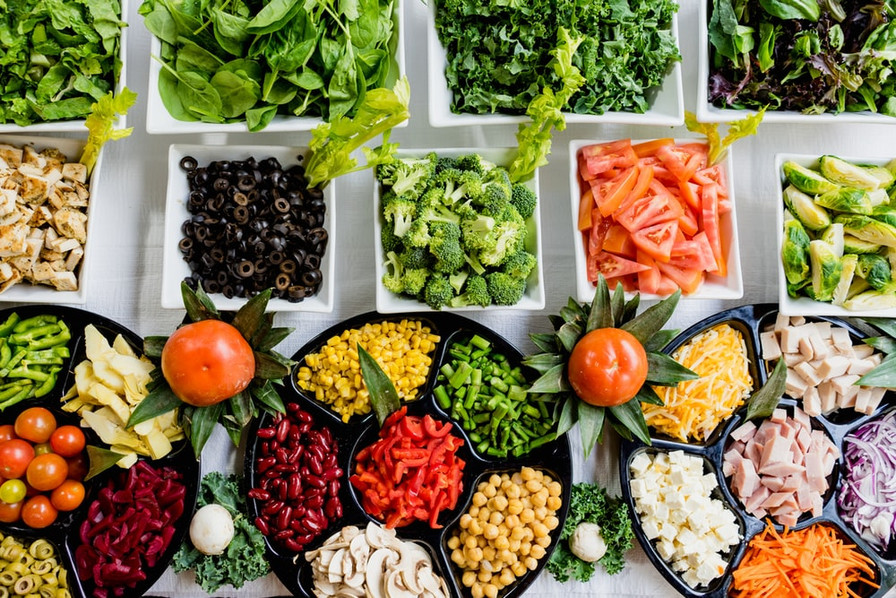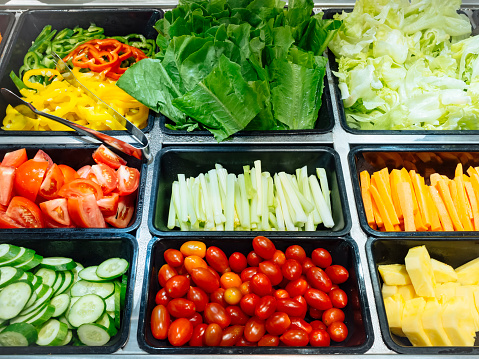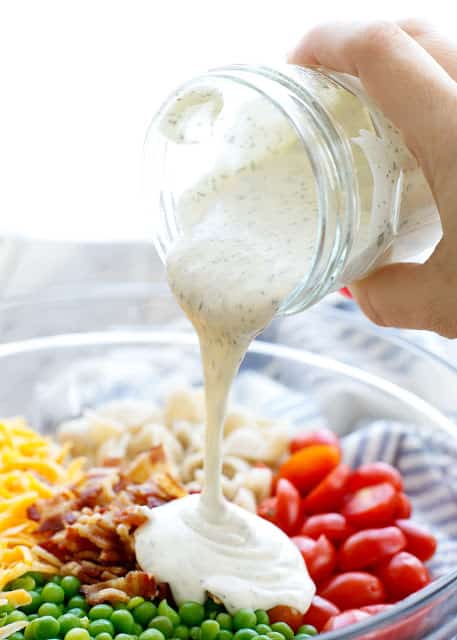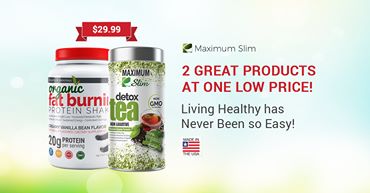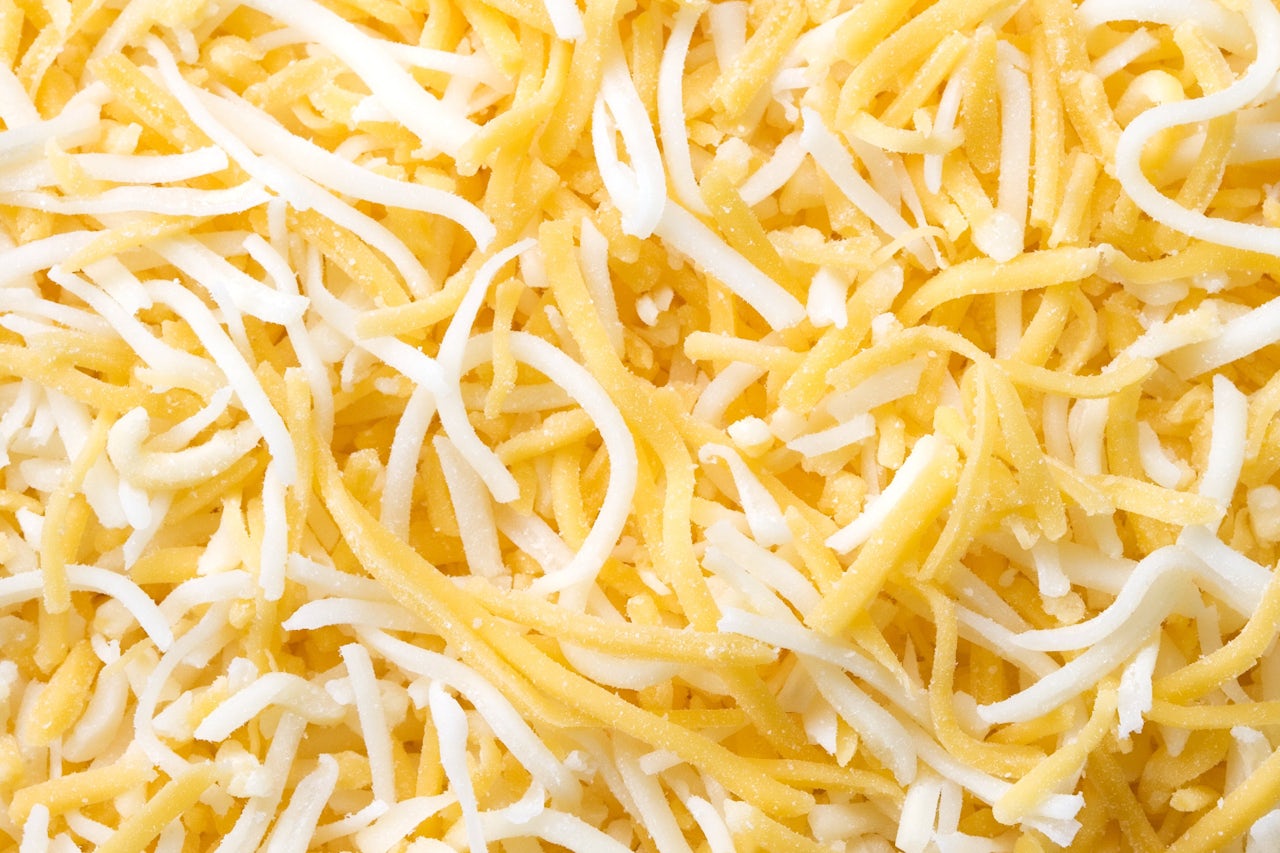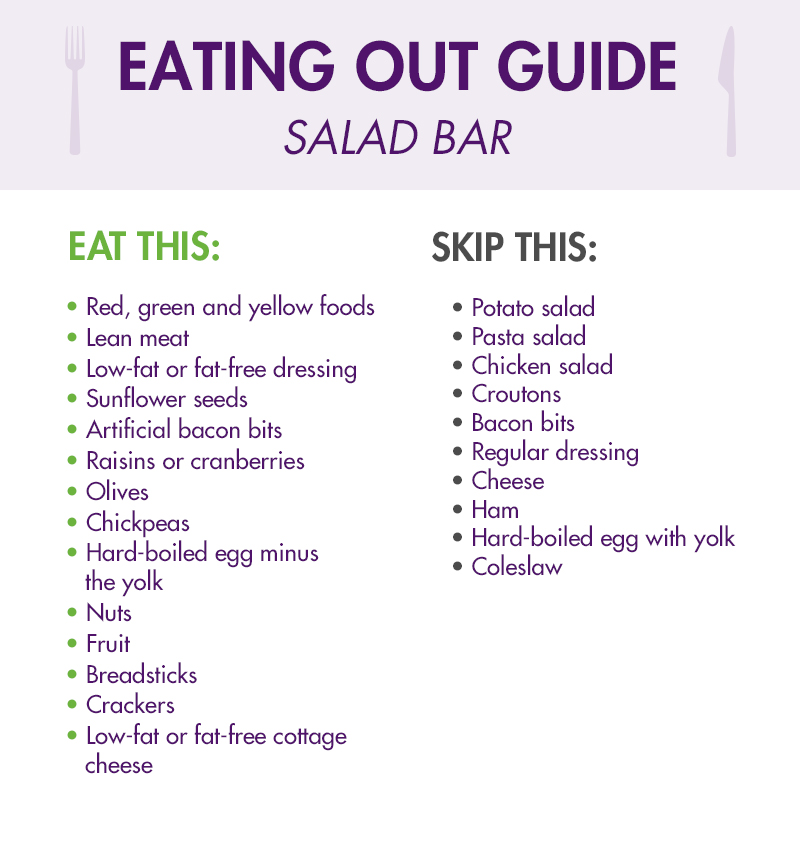Feb 25th 2020
8 Calorie Bombs at the Salad Bar
In a country where only
32 percent of people don’t get their recommended daily servings of vegetables,
salads are awesome. And, with the gazillion salad-focused restaurants that have
popped up across the US, they’re more delicious than ever.
But don’t be fooled into thinking they’re all great choices for people on
weight loss programs: There’s a reason there are so many lists of fast-food and
fast-casual salads that have more calories and fat than a Big Mac. Keep your
salad truly healthy by avoiding these eight sneaky, calorie-laden ingredients
at the salad bar:
1. Creamy Dressings
Ranch, creamy Italian, and other thick, gloopy dressings are creamy, delicious and sadly, loaded with fat and calories: Just two tablespoons of the leading regular ranch dressing has 140 calories and 14 grams of fat—that’s more fat than a full-size Snickers bar.
Opt for lighter dressings, or even a squeeze of lemon, for a huge calorie savings. But if creamy is a must-have for your salad, look for yogurt-based creamy dressings. They’re usually lower in calories and, when made with nonfat yogurt, swap the fat for filling protein that can make your salad more satisfying and stave off cravings for snacks as you digest.
2. Croutons
Croutons are stale bread, often baked in butter, then sprinkled with high-salt seasoning. They hang out in bags for way longer than seems safe without going bad, waiting to add 93 calories on your plate for every half-cup you add to your salad.
The real allure of croutons is that tangy herb seasoning and a satisfying crunch—and you can recreate both with ease. Shake on some low-salt herb seasoning as you dress your salad and give it that pop of crunch with added carrots, water chestnuts or a measured portion of nuts—just skip the glazed kind (see number three for details).
3. Glazed Nuts
These are candy. Don’t believe it? Here’s how you make them: Melt a bunch of butter in a pan, then toss the nuts with sugar, cooking until coated in a glaze.
Sounds awesome for a bowl of holiday treats—or even for a decadent holiday salad—but for your Tuesday lunch, it’s not going to help you reach your weight loss goals. Get the crunch—and protein and healthy fats—of nuts but watch your portion sizes. Just a quarter cup of roasted, unsalted almonds adds 206 calories to your salad, which could double the original calories.
4. Tortilla Strips or a Tortilla Bowl
Lump those strips in with croutons: Crunchy, salty and easy to replace. But the tortilla bowl is a serious calorie-laden gut bomb. One of the leading fast-casual burrito restaurants offers one that clocks in at 460 calories—more than you probably plan for your whole lunch to contain—along with 33 grams of carbs and 33 grams of fat.
5. Fried Proteins
It’s not just that you’re topping your salad with fried chicken, it’s how much: Crispy chicken salads (like the Boneless Buffalo Chicken Salad from Chili’s) are loaded with so much chicken that the salad can surpass 1,000 calories—more than half of what many people are supposed to eat in a day—and more than 70 grams of fat, as much as you’d get from eating almost two of the giant orders of fries at Five Guys.
Opt for grilled chicken, hard-boiled eggs or grilled beef to give your salad a filling, muscle-building, fat-fighting kick of protein.
6. Iceberg Lettuce
With iceberg, it’s not what you’re getting, but what you’re missing: Dark leafy greens like kale and spinach are loaded with Vitamin C, have more Vitamin A than carrots, and are packed with antioxidants that reduce inflammation and ward off cancer.
If you’ve found kale too rough for your liking as a raw vegetable, try this massaging method to soften and shrink the green before starting your salad: Start by removing the stems (which are tough and fibrous), and chop the leaves into one-inch chunks. In a bowl, squeeze the juice of half a lemon over the kale chunks. Use your hands to gently massage the lemon juice into the kale leaves—this will soften and shrink the leaves slightly, as well as pre-dressing the salad. Add your favorite mix-ins, and chow down.
7. Mayo-Heavy “Salads” (think tuna, chicken and egg)
Recipes for these types of salad usually call for a quarter to a half cup of mayonnaise: At 100 calories per tablespoon, that’s 400 to 800 calories you’re tossing in the bowl. If you’re doing that with one can of tuna, you’ve turned a high-protein, low-calorie food into a glop that comes with 44 grams of fat.
You can get the same, creamy effects with other ingredients for far fewer calories: Try using a quarter-cup of nonfat sour cream in your tuna salad for a tangy, low-calorie starter, or use ripe, mashed avocado to make chicken salad that’s loaded with heart-healthy fats instead of saturated.
8. Too Much Cheese, Dried Fruit or Starchy Veggies
In a Canadian study, people overestimated the size of a proper serving of cheese by 31 percent—meaning that if you aren’t measuring, you’re probably going to add more calories than you originally planned to your healthy bowl of greens. A 30 percent increase in a serving of shredded cheddar, for instance, means a bump of 33 calories to your salad—doesn’t seem like much, but if you measure correctly once per week, you could avoid gaining an extra half-pound over the course of a year.
To keep your salad on-plan, start by loading it up with foods you can eat in unlimited fashion: Greens, of course, but also cucumbers, tomatoes, broccoli chunks, carrots and onions. Then be more measured with toppings and dressing, measuring each precisely each time—the precision will pay off, and leave you wiggle room for your next treat or cheat.
Check out this handy guide to better understand what you should choose and avoid while at the salad bar:


